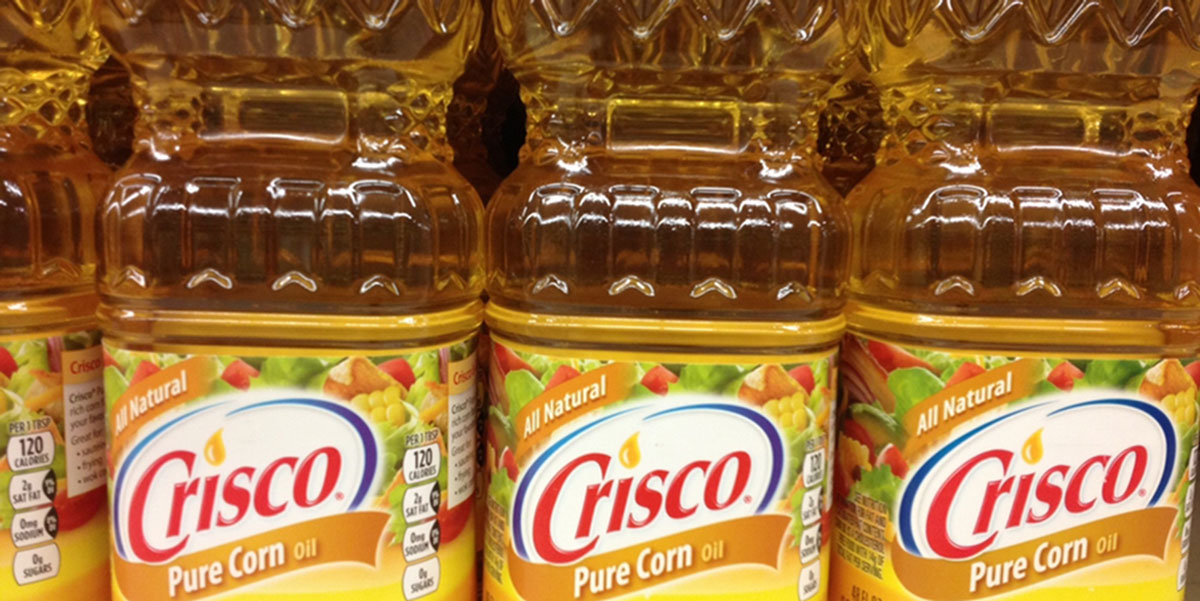
Big companies do not support the USDA's proposal to exempt refined oils and sugars from GMO disclosure – but run scared from clear on-package labelling
If consumers are to believe that the food industry is serious about transparency, then highly refined ingredients derived from GM crops, such as sugars and oils, must be included in the definition of "genetically engineered" in federal GMO labelling legislation, Unilever, Hershey, and Nestle have argued.
The companies lay out their arguments in comments filed with the USDA on a proposed new draft rule for labelling GM foods. Loopholes proposed by the USDA could exempt highly refined GMO sugars and oils from the labelling standard. According to an analysis by the civil society organisation EWG, if this loophole is allowed to stand, over 10,000 – or one out of six – products would escape labelling.
Transparency, not presence of GM material is the issue
In its comments to the USDA, Unilever said that many GM corn-based sweeteners and GM soy-based oils cannot be identified by analytical tests due to the absence of genetically modified rDNA, but they should still be labelled.
The company said, "A narrow focus on the presence of genetic material creates a differentiation based on rDNA that some could use to imply a safety issue with the rDNA. This narrow focus may lead to consumer belief that somehow foods and food ingredients containing genetic material are different."
Hershey agreed that the definition of GM ingredients should be "founded on traceability to the source crop, not detection of modified DNA. Only that approach will deliver on consumer expectations for full transparency and bring clarity and consistency, not confusion, to the marketplace."
Nestle spokeswoman Kate Shaw used similar language in a statement to Reuters: “Consumers want to know what is in their food and beverages and we believe that they deserve transparency. It’s at the core of our business.”
Unilever added in its comments to the USDA, "Unilever’s support for mandatory highly refined ingredient disclosure is grounded in our commitment to transparency and to building consumer trust in the use of bioengineered ingredients and foods. Consumers are seeking more information about how the food, beverages and consumer products they consume and use, are produced. Our company is committed to providing our consumers with the information they need to make informed choices about these products."
Use the GM word
What is extraordinary about these industry comments is that in terms of transparency, they are light years ahead of the USDA, which came up with labelling proposals that seem to try to hide, rather than disclose, GMO ingredients. The proposals include smiley-face logos containing the mysterious acronym "BE" for "bioengineered" – even though Americans and citizens of other nations are most familiar with the term "genetically engineered" when it comes to describing GM ingredients.
Unilever is unimpressed with these proposals. It points out that the US Food and Drug Administration (FDA) uses "genetic engineering" and "bioengineering" interchangeably, but adds that for the sake of consistency across international trading partners and to avoid "consumer confusion", the term "genetic engineering" should be used in disclosure statements aimed at consumers.
As for the USDA's smiley-face logos, Unilever says it "appreciates the non-disparaging nature of the alternatives proposed in the rule" but suggests instead "a neutral symbol". It adds, "We do not believe the acronym 'BE' on its own is recognized or understood by consumers today."
Consumers will still be in the dark
The USDA came up with the proposals for GMO labelling after President Obama signed a GMO labelling bill into law in 2016. The law was dubbed by critics the "DARK (Denying Americans the Right to Know) Act" because it allows companies to "disclose" the presence of GM ingredients via a barcode scannable with a smartphone – bypassing all those shoppers who don't own smartphones or can't get a reliable signal. The Act also allows companies to provide a telephone number that shoppers can call for more information. In other words, it allows companies to avoid using a clear on-package label stating that an ingredient is genetically engineered – something that consumers in over 60 countries worldwide already have.
In this crucial respect of transparent GMO disclosure, Unilever and Hershey fail miserably. In their comments to the USDA, the companies support the use of smartphones and scannable barcodes, which they say they already use to disclose the use of GM ingredients in products.










